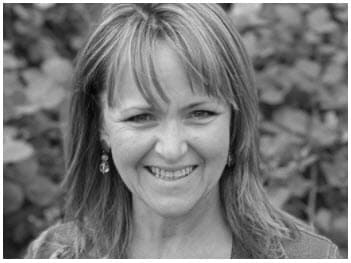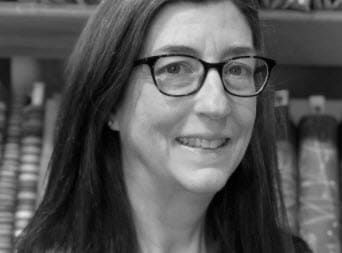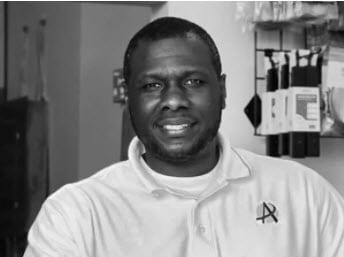Running a small business is hard work in the best of times. For many small businesses in 2020, it took exceptional ingenuity to survive pandemic lockdowns. The 2020 recipients of the Synchrony Pillars Project Awards showed grit, innovation and creativity that helped them survive and become shining stars in their communities. Synchrony a premier consumer financial services company, provides a wide range of specialized financing programs. Since 2016, Synchrony’s small business awards program, the Pillars Project, has honored innovative small businesses who have supported their communities through times of change.
Keeping The Community Safe At Home

Orlando Lopez de Victoria: Juapi Project Services, San Juan, Puerto Rico; founded in 2015
Orlando Lopez de Victoria, owner of renewable energy company Juapi Project Services, gained invaluable experience following the one-two punch of hurricanes Irma and Maria back in 2017. “It was a huge blessing for us as a company,” he says of the work he did during this time in partnership with nonprofits including the American Red Cross and Water Mission. “Thanks to the solar energy systems we installed, communities were provided with clean and safe water.”
Fast forward to 2020, as the pandemic lockdown began, Juapi pivoted to remote work and paused its solar installations. But as the start of a new hurricane season loomed, Lopez de Victoria turned to his prior experience, and he focused on getting safe and affordable solar energy sources to Puerto Rican households. During this time, he saw applications for Synchrony credit peak. He sold portable solar generators and a new offering called off-grid solar kits, which he developed to bridge the gap between portables and complete residential systems. “Dealing with the pandemic and being in hurricane season at the same time is not easy,” he says. “Offering our customers a solution for energy, clean and reliable energy, with great financing offers from Synchrony, provided peace of mind that a lot of people can’t comprehend. As soon as the grid goes out, they know they can rely on their solar panels and their batteries.”
Lopez de Victoria used his Synchrony Pillars Project award to hire more installers and a new sales manager. This year, he plans to get new certifications for himself and his staff. “It’s important to stay up to date, learn new technology and teach others,” he says, as he works at growing his business. For this year’s hurricane season, he is offering new portable solar generators that cost less than half of the ones he sold last year. By expanding the range of his product line, he hopes even more Puerto Rico residents will benefit from his product offerings.
Providing Protection To Frontline Workers

Carla Kaminga: Hendrix Heating, Tangent, Oregon; owned since 2008
“Do you have any MERV 13 air-conditioner filters?” It was early spring, 2020, and Carla Kaminga, the co-owner of Hendrix Heating, was getting this question repeatedly. “One of our sayings at Hendrix Heating is ‘Free filters for life,’” she explains. “So, we give free filters to any customer that asks.” She started filling the requests — requiring a special order due to the type of filter — but something puzzled her. “The restrictiveness of the MERV 13 filter isn’t always the best thing for a piece of heating or air-conditioning equipment,” she says. So why were her customers specifically asking for it?
Soon Kaminga, who has been providing her customers Synchrony financing options since 2017, learned people were ripping the filtration material out of the filters and using it as filters in cloth face masks. Customers thought these filters would make face makes impenetrable to Covid-19. But she knew the shredding of the filters could create dangerous particulates, so she commandeered a 2,500-foot roll of the raw material . When a nurse from a hospital three hours away learned that Hendrix Heating had this material, she asked if she could pick up enough to make mask filters for the nursing staff whose PPE was scarce. Kaminga obliged and was determined to produce her own mask filters on a makeshift factory line in her shuttered office.
Hendrix Heating made and distributed tens of thousands of filters to local hospitals and clinics, hospices, long-term care facilities and first responders, plus hundreds of their customers. A local mask brigade sent this scarce material to New York City at the height of its Covid-19 crisis. Each batch came with precise decontamination instructions that the nurse had shared. “I learned more about that stuff than I ever wanted to learn,” Kaminga says with a laugh. “But it was the coolest thing.”
Kaminga and her husband continued to pay it forward with the Synchrony Pillars Project award money. They launched a scholarship designed to help a deserving local high school senior pursue an education at an accredited trade school, technical school or local community college. The first Hendrix Heating & Air Conditioning Scholarship recipient was approved on March 18, 2021.
Finding New Ways To Engage Customers

Katie Nathwani: The Quilter’s Trunk, Chicago, IL; founded in 2015
“It’s been a wild ride,” says Katie Nathwani, owner of Chicago’s The Quilter’s Trunk, of her experience with the pandemic. At the beginning, the shop closed for the health and safety of its employees, but business hardly paused. She was bombarded with calls from people who wanted to buy new sewing machines and fabric, and wanted to pick it up curbside. Some of the demand for curbside pickup, she suspected, had to do with the lack of available PPE. She became determined to get mask-making supplies into the sewing community’s hands. “We decided to become a conduit to it all,” Nathwani says. They set up two tubs outside the shop: one for cloth mask kits customers could pick up and take home, and the other for completed masks, sewn by customers, to donate to those in need. It worked. By the time the effort ended, the shop had given away fabric and provided an online pattern that resulted in more than 7,000 masks.
At the beginning of the pandemic, there was enormous pressure to put everything the store sold online, Nathwani says. But as time passed, it became obvious that the most important way the team could help was by creating a community hub for people who share a passion for sewing. They sought ways to engage their customers while the shop was closed, such as an informal video meet-up on Tuesdays, where insights, tricks of the trade and friendly banter are shared. Even though the shop has reopened , Nathwani has no plans to end the virtual get-togethers. In fact, she’s using the Synchrony Pillars Project award money to buy new equipment to improve the production value of the video chats. She intends to create a series of videos to provide virtual support for sewing machine owners. The enhanced virtual gatherings made possible by Synchrony, Nathwani notes, will increase customer engagement and satisfaction, which in turn generates word-of-mouth recommendations. “That is what makes us stand out,” she says.
Making Technology Accessible To All

Willie Brake: All About Technology, Detroit, Michigan; founded in 2001
When the pandemic shut down Detroit schools and office buildings, Willie Brake closed his local computer shop, All About Technology. That closure lasted just two days. “Phones were ringing off the hook,” he recalls as everything from school to work moved online. He reopened his store, offering curbside pickup of online orders, appointments to manage increased traffic and virtual troubleshooting. “It was an opportunity to step up for our community. First and foremost, we realize that digital resources are increasingly critical for advancement. Families without access to technology are at a severe disadvantage, particularly families with school-age children.”
It was clear to Brake that in an increasingly online world, the digital divide was deepening for students, residents, and small businesses in his community. His solution: A unique recycling program using discarded computers from corporations and government agencies, which All About Technology refurbishes and sells for $200. This initiative, which Brake started in 2001, was helpful in providing people with the tools they needed at a price they could afford. Brake and his staff sold approximately 1,200 refurbished computers during the pandemic and realized a significant increase in business compared to the same period the year before. Brake also continued his partnership with the City of Detroit’s summer employment youth program despite the lockdown. He donated computers to his 2020 summer interns so he could mentor them on the retail, customer service and sales experience.
Thanks to the Synchrony Pillars Project award, Brake increased his network’s bandwidth so more of his employees could work remotely, and he expanded the online ordering capabilities so customers could continue to shop from home. He also expanded his business’s reach with radio and TV commercials, and after seeing an increase in customer retention and conversions as a result, he now realizes the extraordinary value of the publicity efforts. “The award allowed us to attract new customers, generate additional sales and increase profit margins by connecting with people that were looking for help,” Brake says. “As a certified disability-owned minority business enterprise, our marketing campaign focused on our advantages in the marketplace, such as the fact that we were actually open for business during the pandemic, competitive rates, quick response and turn-around times,” Brake says. Brake is now considering opening All About Technology stores in other targeted communities. “The pandemic has given me a chance to reflect on our 20 years of service to the community, and has given me the opportunity to spend more time working on the business than working in the business,” Brake says.
Synchrony is committed to helping small businesses stay strong. See how you can grow your business.

